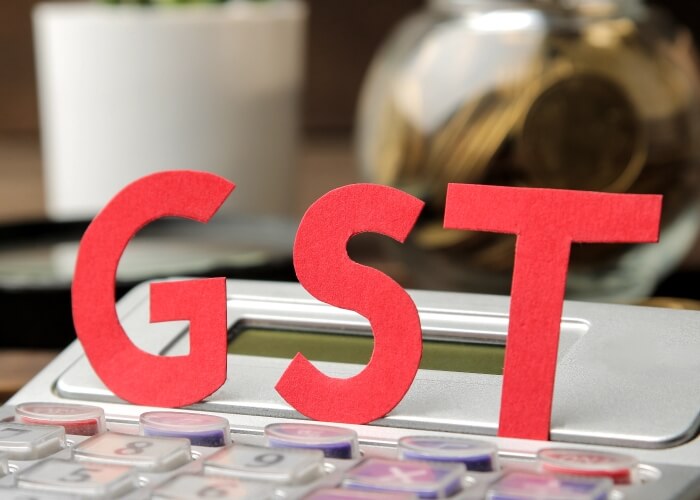The implementation of the Goods and Services Tax (GST) in India has had a substantial impact on the economy. It created a single indirect tax system and made it easier for most businesses in the sector to pay taxes. This ground-breaking change from the current VAT (Value-Added Tax) system to a consumption tax based opened substantial economic opportunity.
One of the biggest industries in the country is real estate, which contributes significantly to the GDP and employs thousands of people. Due to its complexity, the impact of GST has been considerably more substantial on real estate than on other businesses.
In April 2020, the real estate GST was reorganized again. The GST Council raised the tax rate for under-construction projects to 12% in April 2019 and 5% for affordable housing projects. The GST Council has delayed the introduction of the real estate tax rate until 2023, and any adjustments to the GST rate structure must be authorized by the government’s budget.
The government and public-sector organizations are taking many more steps to help the real estate market and the economy grow. These strategies include cheaper land, relaxed FDI laws, an emphasis on housing for everyone, speedier project approval, and lower stamp and registration taxes.
Overall, the impact of GST on real estate has significantly influenced India’s real estate market. It has streamlined and simplified the taxation procedure, considerably boosting the industry. When the new GST rates are implemented in the real estate market in Mumbai, the full benefits of GST in this industry may become evident. With the passage of the GST, investors and buyers can look forward to the Runwal Group’s real estate market in Mumbai, which is more affordable and straightforward.
Since the Goods and Services Tax (real estate GST 2023) was implemented, India has changed a lot. It has changed the way buyers and sellers see the market.
Let us look closely at the impact of GST on India’s real estate market.
- GST rates on Commercial Materials:
- GST Rate on Construction Services:
- Registration and Stamp Duties:
- Input Tax Credit:
- GST Impacts on:
Under the GST system, the tax rate on commercial products has gone from 12% to 9%, which has cut costs by up to 20%. This has made more people want to buy real estate by lowering the cost of building and getting more people to invest.
Construction service taxes have increased from 12% to 18% under GST. This slight increase in the tax rate has made it easy for people to buy or sell real estate.
The GST abolished registration and stamp duties and harmonized the tax, resulting in a more streamlined taxing system and a reduction in the burden of many taxes.
Input tax credits, which are credits for the GST paid when making or buying inputs, is another benefit of GST. This makes it easier for businesses to get into the real estate business and invest more, which increases market demand.
The impact of GST is significant concerning the real estate market, which has a far-reaching effect on every company that deals with physical assets.
Understanding the impact of GST on real estate, affecting affordability, luxury homes, and under-construction property is critical.
- Affordable Housing:
- Luxury Housing:
- Under-construction Property:
The practical solution provided by GST for affordable housing has reduced taxes for the real estate industry, making new property purchases affordable for buyers. Lowering stamp duty and registration costs on affordable housing is one way to encourage more individuals to buy, thus increasing the industry.
Since GST is paid at a higher rate of 12%, it considerably influences luxury properties. This has redirected high-end shoppers to more affordable alternatives. Yet, property developers have devised various methods to assist clients in absorbing these additional costs to avoid losing customers.
Under-construction properties often have several restrictions, and the buyer must pay the tax amount individually. To address this, the GST council has suggested a composite tax (special tax rate) of up to 6%, depending on the state of residence. Composite taxes encompass input and output services/products, making payment easier as a single tax.
Conclusion
With the start of the GST, India’s real estate market has entered a new era of change and reform. The advent of the real estate GST 2023 in India has changed hugely. The impact of GST on real estate has been on India’s tax reform measure for over a decade. Since then, several reforms have been made, with the GST expected to favor India’s real estate market.
GST fundamentally shifts the usual tax system from the supplier to the customer. Buyers may now claim input tax credits (ITC) for purchases made for their projects under the GST regime. Customers may save money on labor and building supplies such as cement, bricks, and metal. At the same time, the GST’s tax-cutting initiatives may make real estate investment in India cheaper.
In addition, implementing the GST has helped open up the real estate developer in Mumbai, making it easier for buyers to make informed decisions. This is particularly true for firms in real estate in Mumbai, like the Runwal Group, which has a transparent app-based booking system that streamlines the purchasing process.
Overall, India’s adoption of GST has been suitable for the real estate market because it has made investing in property cheaper and more accessible. The industry is optimistic that the GST changes will continue influencing India’s property investment environment.


 SHARE
SHARE
